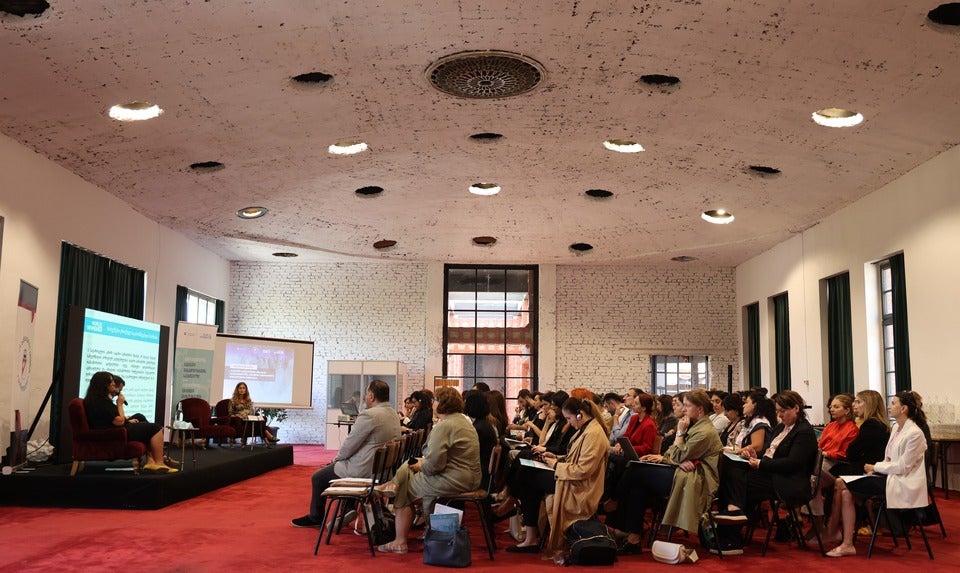Civil Service Bureau presents the findings of the Gender Impact Assessment of the Law of Georgia on Public Service
Date:

In Georgia, women are underrepresented in leadership positions within the public service sector, with the gender gap widening significantly when considering the gender balance in top managerial positions. To provide the Government of Georgia with evidence-based recommendations on promoting women’s leadership in public service, UN Women, in partnership with the Civil Service Bureau, conducted a Gender Impact Assessment (GIA) of the Law of Georgia on Public Service.
On 20 September 2023, UN Women and the Civil Service Bureau hosted a presentation of the GIA of the Law of Georgia on Public Service. More than 100 representatives of the legislative and executive government, development partners and civil society organizations took part in the event. The initiative is aligned with the 2023–2024 Public Administration Reform Action Plan adopted by the Government of Georgia in 2023 as well as the Bureau’s internal 2022–2024 Gender Equality Action Plan adopted with UN Women’s support in 2022. The results of the research aims to support the Government of Georgia in identifying existing gender gaps in the Law and informing legislative and policy initiatives on mainstreaming gender equality and promoting women’s leadership in public service.
“One of the top priorities of the Civil Service Bureau is to establish a diverse and gender-sensitive public service [sector]. For this purpose, the GIA of the Law of Georgia on Public Service was conducted by the Bureau with the support of UN Women and in cooperation with the ISET Policy Institute,” said Maia Dvalishvili, Deputy Head of the Civil Service Bureau. “We are hoping that this research will pave the way for legal initiatives that will further promote gender equality and diversity in public service.”
As of 2022, among the total public service workforce, women comprise 31 per cent when including the Ministry of Internal Affairs (MIA) and 59 per cent when excluding the MIA. Women comprise 43 per cent of the rank I and rank II managerial positions (top management and middle management, respectively) and 34 per cent of the rank I managerial positions. The gender gap widens significantly when considering the gender balance in top managerial positions: women make up only 9 per cent of the heads of public entities and 15 per cent of the deputy heads of public entities. Moreover, the latest data show that there has been a tangible decrease in women’s representation at the level of heads of public agencies—from 15 per cent of women in 2019 to 9 per cent in 2022.
The research was conducted by the ISET Policy Institute and identifies major barriers to achieving gender equality in public service. The lack of clear and transparent procedures for promotion and career development, the disproportionate burden of unpaid and care work on women and the so-called ‘glass ceiling’ have been identified as some of the key obstacles. In addition to identifying problems, the research further proposes a set of legislative changes as well as policy recommendations to aid policymakers in promoting gender equality in public service. These recommendations include incorporating the principle of substantive equality into the Law on Public Service, which will introduce special measures to promote gender equality, as well as enforcing mandatory sexual harassment prevention and response mechanisms, along with employee trainings, in public institutions.
The initiative was carried out within the framework of the “Good Governance for Gender Equality in Georgia” (GG4GEG) project funded by the Ministry of Foreign Affairs of Norway.